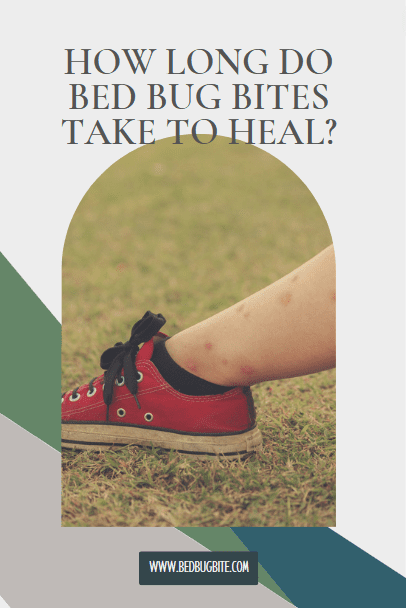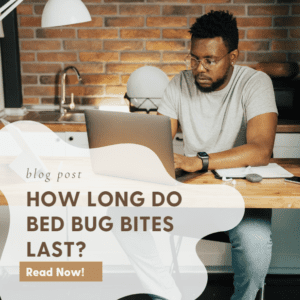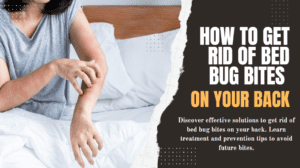Introduction
Understanding the details of bed bug bites—how long they take to heal, what influences the healing process, and how to speed up recovery—is crucial for anyone dealing with a bed bug infestation. If you’ve ever woken up with mysterious, itchy welts on your skin, you know the importance of prompt intervention. This guide will delve into all the aspects you need to be aware of, from identifying the telltale signs of bed bug bites to implementing effective treatment strategies. Armed with this knowledge, you’ll be better prepared to manage your bed bug issue swiftly and efficiently. So, let’s dive right into understanding this common but often misunderstood problem.
According to the Centers for Disease Control and Prevention (CDC), bed bug bites usually heal within a week to ten days without any treatment. However, individual experiences can vary significantly due to factors such as the immune response, severity of the bites, and secondary infections.
With this guide, you won’t have to rely solely on statistics; you’ll gain insights into tailoring treatment options to your specific needs. By breaking down each aspect, this post aims to be your comprehensive resource on the healing time for bed bug bites. Now, let’s delve deeper to arm you with the knowledge you need to conquer this issue once and for all.
What are Bed Bug Bites?
Distinguishing bed bug bites from other insect bites is the critical first step in effectively managing the problem. Bed bug bites are usually small, red, and itchy welts that appear after the nocturnal bugs feed on your blood. Unlike mosquito or flea bites, these tend to occur in a linear or clustered pattern, often resembling a trail on your skin. They primarily occur on exposed areas of your body, such as arms, legs, and neck, and can range from mildly irritating to severely inflamed, depending on individual reactions. According to the American Academy of Dermatology, bed bug bites can sometimes take up to two weeks to show any symptoms, making early identification even more crucial for prompt treatment
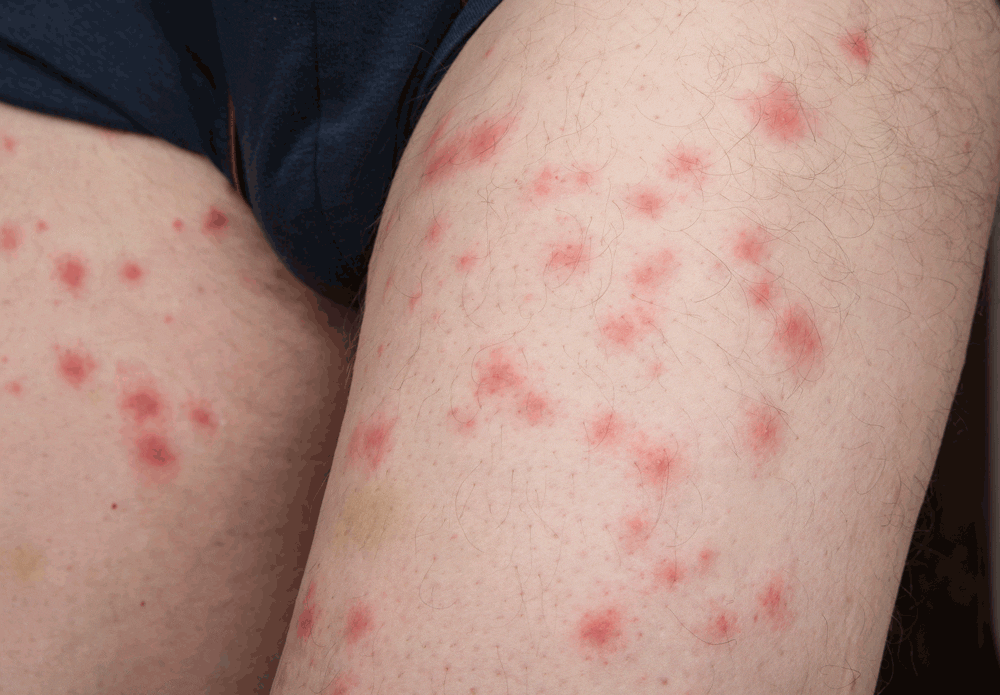
What sets bed bug bites apart is not just their appearance but also the psychological distress they can cause. While most other insect bites can be random, bed bug bites often signify a larger infestation issue that needs immediate attention. The mere thought of bugs feasting on you while you sleep can be unnerving. Therefore, understanding the nature of bed bug bites is not just about physical treatment; it’s also about arming you with the information needed to approach the issue holistically and mitigate any further stress. So, let’s move on to explore the factors that influence how quickly these bites can heal.
Factors Influencing Healing Time
When it comes to the healing timeline for bed bug bites, one size doesn’t fit all. Several variables come into play, impacting how quickly your skin recovers. These factors can broadly be categorized into the individual’s immune system, the severity of the bites, the number of bites, and the presence or absence of secondary infections. Understanding these elements is paramount for a tailored approach to treatment and faster healing.
Individual Immune Responses
Your body’s immune system plays a vital role in how quickly you recover from bed bug bites. Some people have a stronger immune response, leading to quicker healing and less noticeable symptoms. Others may experience more severe reactions, like intense itching or even blistering, which can prolong the healing process. According to a study published in the Journal of Investigative Dermatology, individual immune responses to bed bug bites can significantly vary, thereby affecting the healing time.
Severity of the Bites
The depth and intensity of the bites themselves also influence healing. Shallow bites with less tissue damage generally heal faster than deep bites that may even cause minor bleeding.
Secondary Infections
Another key aspect is the risk of secondary infections. If you scratch the bites excessively, bacteria from your skin can enter the wounds, potentially leading to an infection. This not only slows down the healing process but could also require additional medical treatment.
Standard Healing Time for Bed Bug Bites
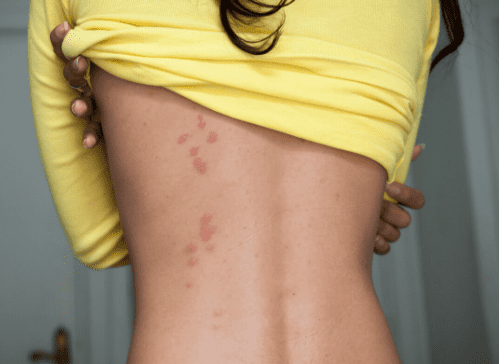
When it comes to estimating how long bed bug bites will take to heal, the average duration typically ranges from a few days up to two weeks. While this timeframe serves as a general guideline, it’s essential to consider that individual cases can differ considerably. According to the Centers for Disease Control and Prevention (CDC), most bed bug bites resolve within a week to ten days if no complications arise, such as secondary infections.
It’s crucial to monitor the progression of your bites carefully. If you notice any signs of worsening, such as increased redness, swelling, or pus, it may indicate an infection or an allergic reaction that requires immediate medical attention.
Treatment Options for Faster Recovery
Knowing what to apply on your bed bug bites can substantially speed up healing. There are multiple avenues for treatment, ranging from over-the-counter remedies to prescription medications and even natural alternatives. Use soap and cold water to clean the bite, preventing infection.
Over-the-Counter Options
For mild to moderate bed bug bites, over-the-counter creams containing ingredients like hydrocortisone can be highly effective. These topical treatments aim to relieve itching and reduce inflammation, helping you avoid the scratching that can lead to secondary infections.
Prescription Medicines
For more severe cases or allergic reactions, antihistamines or prescription-grade creams may be recommended by a healthcare provider. Antibiotics may also be prescribed if there are signs of a secondary bacterial infection. Always consult a medical professional for diagnosis and treatment tailored to your specific symptoms. Aspirin or ibuprofen can relieve pain but consult a doctor before administering any medication.
Natural Remedies

If you prefer natural treatment options, some proven remedies include aloe vera gel and cold compresses to soothe the affected areas. Applying a cold pack can numb the area, reducing itchiness and swelling. Applying diluted apple cider vinegar can balance the pH of the skin, reducing itchiness. With its antiseptic properties, tea tree oil can prevent infection. However, be cautious when trying any home remedies, and consider patch testing first to rule out allergic reactions.
By arming yourself with the right treatment strategies, you not only accelerate the healing of your bed bug bites but also minimize the risk of complications. For persistent or worsening symptoms, consult a healthcare provider for a tailored treatment plan. Up next, we’ll look at preventive measures to ensure you’re not revisited by these pesky critters.
How to Prevent Future Bed Bug Bites
Taking steps to prevent future bed bug infestations is equally as crucial as treating existing bites. After all, prevention is the best form of medicine. No matter how effectively you treat individual bites, the problem will persist if the root cause—a bed bug infestation—is not addressed.
DIY Preventive Methods
Regular cleaning habits are your first line of defense. Vacuuming your mattress, upholstery, and even the area around your bed can drastically reduce the chances of an infestation. Using bed bug-proof mattress and pillow covers can further isolate these pests, making it difficult for them to make a home in your bedding. According to the Environmental Protection Agency (EPA), the consistent use of bed bug traps and protective covers can be a valuable part of your preventive strategy.
If you want to get rid of bed bugs fast without using an exterminator, your best bet is a combination of chemical and heat treatments. First, identify and isolate the infested areas. Use insecticides made for bed bugs and follow the application guidelines carefully. For a heat treatment, use a high-pressure steam cleaner on soft furnishings like mattresses and curtains. Also, wash all bedding, clothes, and curtains in hot water and dry them on the highest setting. Vacuum all surfaces thoroughly and seal any cracks in the walls. Keep in mind that you may need to repeat these steps to ensure you’ve eradicated all bed bugs and their eggs. It’s essential to act quickly and follow all steps diligently for effective, fast results.
Professional Extermination
For stubborn or severe infestations, professional extermination is often the most reliable solution. When choosing an extermination service, look for professionals experienced in dealing specifically with bed bugs. They should be able to provide a comprehensive treatment plan, which may include chemical treatments, heat treatments, or a combination of both.
The cost of hiring a professional bed bug exterminator varies based on several factors like the size of your property and the severity of the infestation. Initial inspections can be free or up to $200. Treatment methods differ in cost: chemical treatments are usually cheaper, around $250 to $900 per room, while heat treatments can cost between $1,200 to $2,500 for a whole house. Add-ons like follow-up visits or canine inspections can increase the price. It’s wise to get multiple quotes, check reviews, and understand the methods used before hiring an exterminator. Costs can also be higher in urban areas compared to rural regions. Overall, being well-informed can help you make a cost-effective choice for tackling your bed bug problem.
Conclusion: Key Takeaways and Final Thoughts
Navigating the ordeal of bed bug bites is no small feat but armed with the comprehensive insights provided in this guide, you’re well-equipped to manage and expedite the healing process effectively. We’ve covered everything from identifying bed bug bites to understanding the numerous factors that influence healing time. We’ve also delved into various treatment options, both over the counter and prescription-based, as well as natural remedies that can provide relief. Finally, we underscored the importance of prevention methods, including DIY strategies and professional extermination, to ensure a bed bug-free environment.
Remember, the average healing time for bed bug bites ranges from a few days up to two weeks. However, this duration can vary depending on individual immune responses, the severity of the bites, and the risk of secondary infections. It’s crucial to remain vigilant, continually monitor the affected areas, and consult healthcare professionals for persistent or worsening symptoms.
In summary, your proactive involvement and informed choices are vital in resolving bed bug issues. This guide aims to be your go-to resource for actionable, authoritative advice on bed bug bite healing times. Thank you for trusting us as your reliable source for managing bed bug issues, and we wish you a speedy recovery and a peaceful, bug-free living space.

